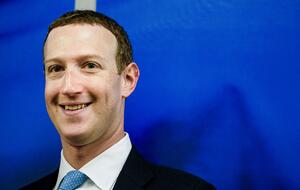The businessman says people need to be "discerning" about whether a real human created the words or media before sharing the content on social media.
In a series of posts on Threads, he began: "Over the years we’ve become increasingly capable of fabricating realistic images, both still and moving. Jurassic Park blew my mind at age ten, but that was a $63M movie. Golden Eye for N64 was even more impressive to me four years later because it was live. We look back on these media now and they seem crude at best. Whether or not you’re a bull or a bear in the technology, generative AI is clearly producing content that is difficult to discern from recordings of reality, and improving rapidly."
He continued: "A friend, @lessin, pushed me maybe ten years ago on the idea that any claim should be assessed not just on its content, but the credibility of the person or institution making that claim. Maybe this happened years ago, but it feels like now is when we are collectively appreciating that it has become more important to consider who is saying a thing than what they are saying when assessing a statement’s validity."
While Meta labels content that is AI-generated, Mosseri insisted some content will "slip through the cracks", so people should still err on the side of caution.
He added: "Our role as internet platforms is to label content generated as AI as best we can. But some content will inevitably slip through the cracks, and not all
misrepresentations will be generated with AI, so we must also provide context about who is sharing so you can assess for yourself how much you want to trust their content.
"It’s going to be increasingly critical that the viewer, or reader, brings a discerning mind when they consume content purporting to be an account or a recording of reality. My advice is to *always* consider who it is that is speaking."





